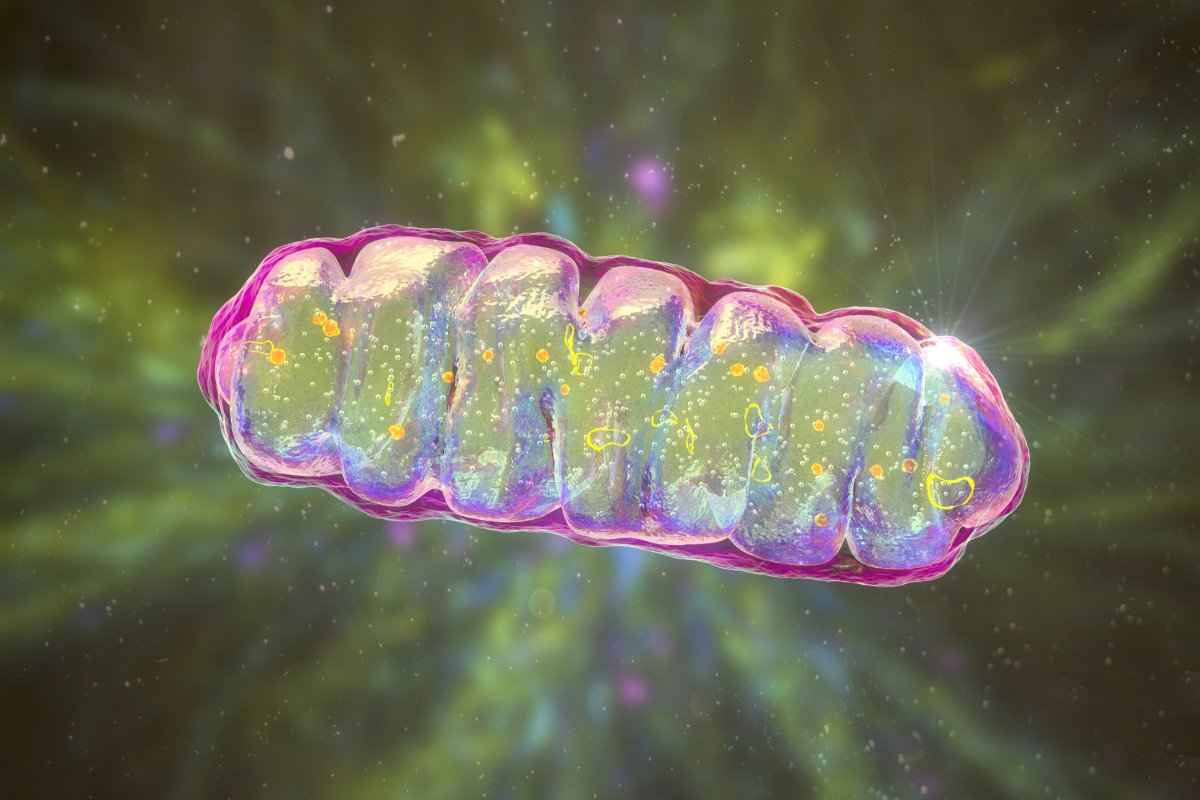Scientists have issued a warning after a new review study highlighted the "significant threat" posed by microplastics on our body's cellular powerhouses: the mitochondria.
Microplastics are any plastics smaller than 5 millimeters (0.2 inch) long. They can be found in industrial waste and beauty products but may also form during the degradation of larger pieces of plastic waste. Many of these plastic pieces end up in our oceans, which are estimated to contain between 50 trillion and 75 trillion pieces of micro- and larger plastics, according to UNESCO's Ocean Literacy Portal.
These plastic particles contain chemicals that can interrupt our body's natural release of hormones, potentially increasing our risk of reproductive disorders and certain cancers. They can also carry toxins on their surface, like heavy metals.
Over time, these microplastics can break down even further into so-called nanoplastics. The particles are so tiny that they can pass through our intestines and lungs directly into our bloodstream, traveling through our bodies and into vital organs such as the heart and the brain.

Micro- and nanoplastics have been discovered in human brain and lung tissues, blood samples and even the placenta, raising concerns about the particles' impact on our overall health. Now a new meta-analysis, published in Cambridge Prisms: Plastics by Cambridge University Press, has combed through 130 studies to demonstrate a clear link between microplastics and the negative effects on the energy-producing powerhouses of our cells.
As well as playing a central role in cellular energy production, our mitochondria are involved in mediating cellular signaling, cell growth and cell death. They thus protect us from the development of diseases like cancer. However, our mitochondria are extremely sensitive and easily damaged, including, it seems, by the presence of micro- and nanoplastics.
"Mitochondria play a crucial role in providing energy to cells, and damage and dysfunction of these organelles can impair cellular energy production, potentially fueling various disruptions such as neurodegenerative diseases, metabolic disorders and age-related disorders," co-authors Dal Yöntem and Müfide Aydoğan Ahbab from Turkey's Koç University and the University of Health Sciences told Newsweek.
They added: "Given the critical role of mitochondria in cellular and organismal health, micro- and nanoplastics pose a significant threat to mitochondrial health and function."
Dysfunctional mitochondria have been implicated in a wide range of serious health conditions, including neurodegenerative diseases like Alzheimer's and cardiovascular disease, so this disruption is likely to have wide-ranging impacts.
Most research suggests that damage caused to the mitochondria by these particles results from the buildup of toxic byproducts from the energy production process. Plastics can also interact physically with the mitochondria, causing structural damage and contributing to functional impairment, which can, in turn, trigger a cascade of cellular responses, from inflammation to cell death.
Emerging research also suggests that micro- and nanoplastics could disrupt the production of mitochondria in our cells, potentially decreasing their numbers and further impairing cellular health and function.
The researchers conclude that more work is required to confirm the negative effects of these particles on the human body across a broader range of plastic types. It is also unclear what dosage is required to see these effects. However, considering the widespread nature of these particles in our environment, this initial evidence raises serious concerns about plastic exposure and human health.
"If more people were aware of the potential threat of MPs and NPs pollution—and the associated increased risk of life-threatening conditions like cancer and the fatal form of dementia, Alzheimer's—they would almost certainly call for and take more action," Yöntem and Ahbab said.
They continued: "Everybody needs to look at their own use of plastic products. Governments and organizations need to develop policies that reduce plastic waste and promote sustainable alternatives. This collective effort will require cross-disciplinary collaboration encompassing environmental science, toxicology, public health, policymaking and more.
"This is no longer just about the impact on our planet," they said. "We urgently need to find out more about microplastics and nanoplastics to safeguard our own and future generations' health," Yöntem and Ahbab said.
Is there a health problem that's worrying you? Do you have a question about microplastics? Let us know via health@newsweek.com. We can ask experts for advice, and your story could be featured in Newsweek.
Update 3/27/24, 10:06 a.m. ET: This story was updated to include comments from study co-authors Dal Yöntem and Müfide Aydoğan Ahbab.
Uncommon Knowledge
Newsweek is committed to challenging conventional wisdom and finding connections in the search for common ground.
Newsweek is committed to challenging conventional wisdom and finding connections in the search for common ground.
About the writer
Pandora Dewan is a Senior Science Reporter at Newsweek based in London, UK. Her focus is reporting on science, health ... Read more
To read how Newsweek uses AI as a newsroom tool, Click here.






